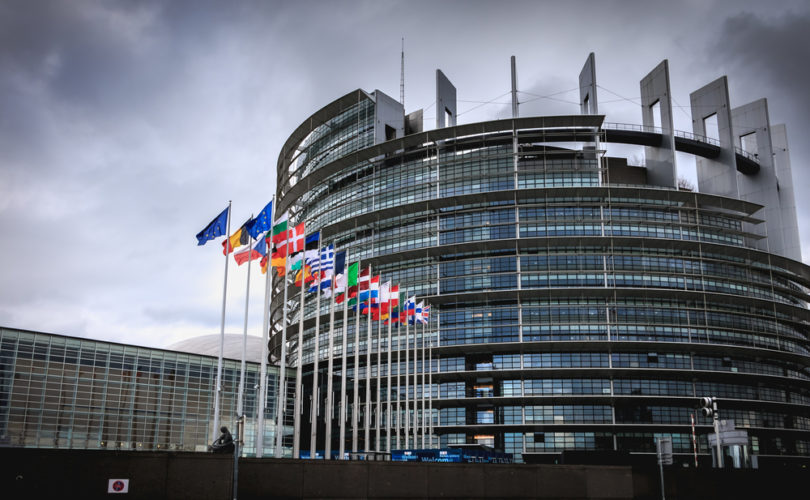BRUSSELS, June 24, 2021 (LifeSiteNews) — A March 25 report “on the situation of sexual and reproductive health and rights in the EU [European Union], in the frame of women’s health” has received the approval of the European Parliament, thereby adopting the report’s framing of abortion as an “essential health service” and a “human right” in a vote Thursday.
The “reproductive health” document, known as the Matić report from the name of its sponsor in the European Parliament, Croatian MEP Predrag Fred Matić, also qualifies a doctor’s objection to abortion “based on personal beliefs” about the unborn as “the denial of medical care.”
During a plenary session of the European Parliament, the legislative body of the EU, lawmakers voted in favor of the pro-abortion report, 378-255, with 42 abstentions. A press statement released by the Parliament after the vote declared that “sexual and reproductive health rights (SRHR) [are] a fundamental pillar of women’s rights and gender equality that cannot in any way be watered down or withdrawn.” Accordingly, the Parliament urged EU member states “to ensure women are offered high quality, comprehensive and accessible SRHR, and to remove all barriers impeding them from using these services.”
The Parliament stressed that these services include “[a]ccess to abortion, contraception and sexuality education,” informing those EU countries with “highly restrictive laws prohibiting abortion [like Poland]” that they now violate a woman’s “human rights.” The report now requires “all member states to ensure universal access” to what the EU calls “safe and legal abortion, and guarantee that abortion on request is legal in early pregnancy, and beyond if the pregnant person’s health is in danger.”
Not satisfied with expanding the definition of abortion to become a human right, the report also diminishes conscience rights, framing objections to abortion as the denial of “care” and “a form of gender-based violence.” “MEPs regret that some member states allow medical practitioners, and even entire medical institutions, refuse the provision of health services because of a so-called conscience clause,” the Parliament’s statement reads. “This leads to the denial of abortion care on the grounds of religion or conscience and puts women’s lives in danger.”
MEPs also emphasized an apparent need to provide sexual education to “primary and secondary school children,” claiming that such instruction “can significantly contribute to reducing sexual violence and harassment.”
Matić commented on the success of the vote, saying that it “marks a new era in the European Union and the first real resistance to a regressive agenda that has trampled on women’s rights in Europe for years.”
Before the Matić report was approved, two alternative proposals were put to the chamber in a last ditch attempt to block the report, German Catholic newspaper Die Tagespost reported. The Christian Democratic EPP parliamentary group and the euroskeptic ECR group both had their attempts thwarted earlier in the day, with the respective proposals voted out by 373-288 and 402-267.
The bishops of the EU criticized the Matić report for its “one-sided perspective,” neglecting any concern for the rights of the unborn human being whose life is at stake. In a paper written in response to the pro-abortion proposal, the Commission of the Bishops’ Conferences of the European Union (COMECE) contradicts the notion of a “human right to abortion.” “A medical intervention of such magnitude cannot and must not become a normal practice” and is “ethically untenable.”
“There is no international human rights, or other international treaty, that provides for such a general ‘human right to abortion’ or a corresponding obligation of States,” they stated. In fact, the bishops asserted that the report “disregards the responsibility of the Member States to define their health policy and the organisation and delivery of health services and medical care,” thus usurping the sovereign rights of those states.
Despite the many objections, “[a] majority of MEPs have made their position clear to member states and called on them to ensure access to safe and legal abortion and a range of other sexual and reproductive health services,” commented Matić.

